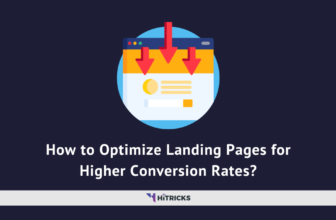As you would probably agree, we are all living in a digital era, isn’t it? If you see around, everybody has an online presence.
Do you like to browse slow and sluggish websites? No right?
In the same way, having a fast-performing and reliable website is a key factor for every business. And your web hosting plays a huge role in determining that. Your server really needs to stand out in the crowd.
You can choose shared hosting, a virtual private server (VPS), or a dedicated server for your business. However, the latter one will be a powerful and customizable solution.
In today’s post, we will explore the benefits of renting a dedicated server usa and provide valuable insights. Whether you are running a small business owner or a growing enterprise, this article will help you with the necessary details. We hope it assists you in choosing the appropriate hosting solution for your website.
Here’s an overview:
Why do you need a Dedicated Server?
Here are the advantages of having a dedicated server.
Unparalleled Performance and Reliability:
When it comes to website performance, speed is of utmost importance. Renting a web server offers unparalleled performance by providing exclusive resources solely dedicated to your website. Unlike shared hosting, where multiple websites compete for resources, a dedicated server ensures optimal performance even during peak traffic. With faster loading times and minimal downtime, your website can provide a seamless user experience, leading to higher customer satisfaction and improved search engine rankings.
Enhanced Security and Data Privacy:
In today’s ever-evolving cybersecurity landscape, safeguarding sensitive data and upholding the privacy of your esteemed customers holds utmost importance. Opting for a dedicated server introduces an invaluable layer of protection. By exclusively utilizing the server without sharing it with any other websites, you effectively eliminate the potential risks associated with security breaches in a shared hosting environment. Moreover, you wield complete authority over implementing tailored security measures that align with your unique requirements. This empowers you to establish robust security protocols encompassing fortified firewalls, cutting-edge encryption mechanisms, and vigilant intrusion detection systems. As a result, your website and data receive an unparalleled level of safeguarding, ensuring optimal protection.
Flexibility and Customization:
Every website has specific requirements, and a dedicated rental server provides the necessary flexibility and customization options to meet those demands. A dedicated server will give you to have complete control over the server’s resources, such as CPU, RAM, storage, and bandwidth. This control allows you to optimize performance according to your website’s unique needs. Moreover, you can install and configure software applications, frameworks, and databases of your preference, granting you the freedom to create a hosting environment that precisely caters to your website’s requirements.
How to Choose the Right Dedicated Server?
Choosing the right dedicated server involves considering several key factors. By taking the following aspects into account, you can ensure that you select a hosting solution that aligns with your website’s requirements:
Hardware Specifications:
Start by evaluating the hardware specifications offered by the hosting provider. Look for servers with modern and powerful processors, sufficient RAM, and fast storage options, such as solid-state drives (SSDs). These components play a vital role in delivering optimal performance and responsiveness to your website visitors.
Bandwidth and Network Connectivity:
Bandwidth determines the data transfer capacity between your server and website visitors. Assess your website’s traffic needs and select a hosting provider that offers ample bandwidth. Also, consider the network connectivity available at the data center housing the servers. Look for providers with redundant network connections and multiple Internet Service Providers (ISPs) to ensure excellent availability and fast connectivity.
Scalability Options:
As your website grows, scalability becomes essential. Ensure that the hosting provider offers scalable solutions that allow you to easily upgrade your server resources as your website’s demands increase. This flexibility ensures that your website can handle spikes in traffic and accommodate future growth without compromising performance.
Operating System and Control Panel:
Evaluate operating system options and select one compatible with your website’s software requirements. Popular options include Linux distributions like CentOS, Ubuntu, or Debian, as well as Windows Server editions. Also, ensure that the hosting provider offers a user-friendly control panel like cPanel or Plesk. A control panel simplifies server management, enabling easy configuration of settings, domain management, and application installation without requiring advanced technical knowledge.
Technical Support and Service Level Agreement (SLA):
Having reliable technical support is crucial for hosting. It’s important to choose a web hosting provider that offers 24/7 customer support through multiple channels, including email, live chat, and phone. Make sure to read reviews and testimonials to confirm that the provider has a reputation for responsive and knowledgeable support staff. Also, review the Service Level Agreement (SLA) to understand the guaranteed uptime, response times, and compensation policies for service interruptions or downtime.
Data Center Location and Redundancy:
The actual location of the data center where your dedicated server is housed can impact website performance. If your focus audience is primarily located in a specific region, choose a hosting provider with data centers in or near that location. Additionally, inquire about the data center’s redundancy measures, such as backup power generators, cooling systems, and network redundancy. These factors contribute to overall server reliability and minimize the risk of service interruptions.
Pricing and Value for Money:
While price shouldn’t be the sole determining factor, it is crucial to consider the pricing structure and overall value for money. Compare the features, resources, and support offered by different hosting providers within your budget. Look for providers that offer transparent pricing with no hidden fees and provide competitive pricing for the level of performance and customization they offer.
Conclusion:
That’s all about renting a dedicated server, what advantages it brings, and the factors to consider before you start. Renting a dedicated server will definitely give a boost to your website performance. In case you have specific queries, just drop them in the comment section below. I will be happy to help.
Thank you for reading. Best wishes for your business.
Nirmal Sarkar is a Biotechnologist from the city of Joy, Kolkata. He is the founder of this blog and covers a wide range of topics from Gadgets to Software to Latest Offers. You can get in touch with him via nirmal@hitricks.com








